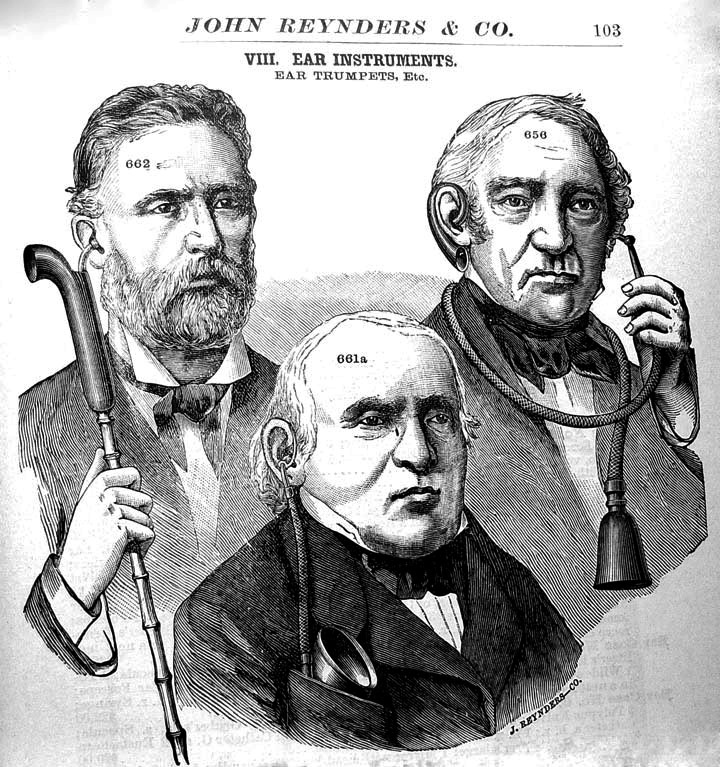Back Home by Chris Hardie
» Download this column as a Word document
» Download the photos that accompany this story
» Chris Hardie’s headshot
Effective communication is the foundation of any successful relationship. It begins with the ability to listen, a wise person once told me.
Or maybe I read it somewhere because lately I’ve had a difficult time hearing. I’m not referring to selective hearing, the condition that occurs in many marriages but afflicts mainly a male who has a problem tuning into the frequency of his wife’s conversation.
My wife, Sherry, will testify I have had the condition for years.
A typical exchange might go like this.
Sherry – “Did you put gas into the mower? I need to mow today.”
Me – “Nope; I didn’t know it needed it.”
Sherry – “I told you that this morning at breakfast. Didn’t you hear me?”
Me – “Nope.”
In my feeble self-defense, sometimes those exchanges occur while she’s walking away from me heading into another room. I’m engrossed in something important like studying the overnight sports scores on my phone — and my response is “uh-huh.”
But since this past year when I was diagnosed with vertigo and then with Lyme disease, I have noticed a marked decrease in my hearing. The dizzy spells have thankfully diminished — that hollow sound you just heard is me knocking on my hollow wooden head — but I often have ringing in my left ear.
So this past fall I went to an audiologist to test my hearing and my ability to recognize words. I then went to an ear, nose and throat specialist to hear the diagnosis.
“Mr. Hardie, it appears by these results and your previous dizzy spells that you may have manure’s disease,” I thought I heard him say.
“Doesn’t surprise me,” I said. “Growing up on a farm and still mucking out sheds, I’m always spreading manure — even when I’m not talking. People always tell me I’m full of it.”
“No,” he said. “I said you may have Ménière’s disease, a disorder of the inner ear.”

Actually, I heard him the first time. Ménière’s disease — pronounced “men-yeers” — is named after the French doctor who first wrote about the symptoms in 1861. It’s a disorder of the inner ear that causes vertigo, tinnitus or ringing in the ear, hearing loss, and a feeling of fullness or congestion in the ear.
The National Institute on Deafness and Other Communication Disorders states it can develop at any age, but usually happens to adults between 40 and 60 years old. There are about 615,000 people in the United States with the diagnosis; I’m one of the 45,500 new cases diagnosed each year. The symptoms are caused by a building of fluid in the compartments of the inner ear, called the labyrinth. That’s where the organs of balance and hearing reside, because they can’t find their way out.
There’s no definitive answer to what causes Ménière’s but it can be linked to viral infections such as Lyme, allergies or autoimmune reactions. In my case I had vertigo first and then Lyme, but it’s possible I was already carrying the Lyme virus and it flared during the summer.
Because there’s no definitive test for Ménière’s and the diagnosis is based upon symptoms, I recently went back for a three-month hearing checkup. The hearing in my right year is normal for a 57-year-old who never used hearing protection while operating lots of loud machinery on the farm for many years — and then listened to Led Zeppelin at pounding levels in his car. My right ear starts to be abnormal at higher frequency sounds — more than 2,000 hertz.
But my left ear ranges from severe loss of hearing at both low and high frequencies, and is still abnormal throughout the mid-range tones. The average woman’s vocal tone is 165 to 255 hertz, which is where my left ear hears the worst. My ability to hear and interpret words in my left ear has decreased from 88 percent in September to 70 percent in December. What’s worse is that ability was measured at 85 decibels and normal conversation is about 60. Noise at more than 70 decibels for a prolonged period can damage a person’s hearing.
Yes, I am 100 percent absolutely guilty of being tone-deaf to my wife’s lovely voice when it comes to my left ear — unless she’s shouting in my ear. Put me in a noisy room and I often just need to nod or shake my head because I can’t make out the conversations.
There is no cure for Ménière’s, but hearing aids are a possibility, and there are other procedures that may take the pressure off my ear. I’m a little worried they won’t find much else inside my head.
So we’ve learned to make adjustments. We now sit side-by-side more often — with Sherry on the right side, of course. I’ve also made handy use of the closed-captioning service on the TV and use earphones while I’m on interactive video chats.
Maybe I’ll find an antique ear trumpet. Better yet I can probably make one myself with old tin and some twine.
But in the end it all starts where it began.
I need to do a better job of listening.
Chris Hardie spent more than 30 years as a reporter, editor



